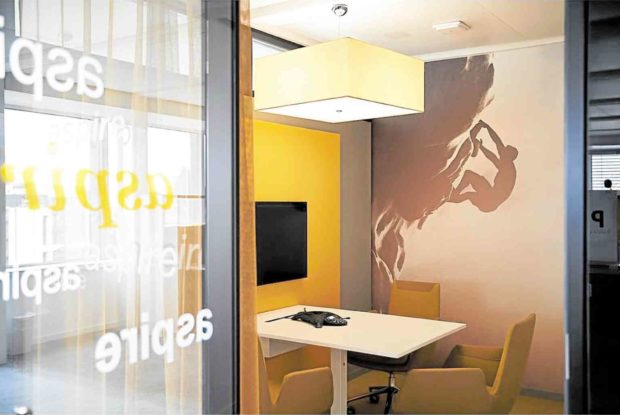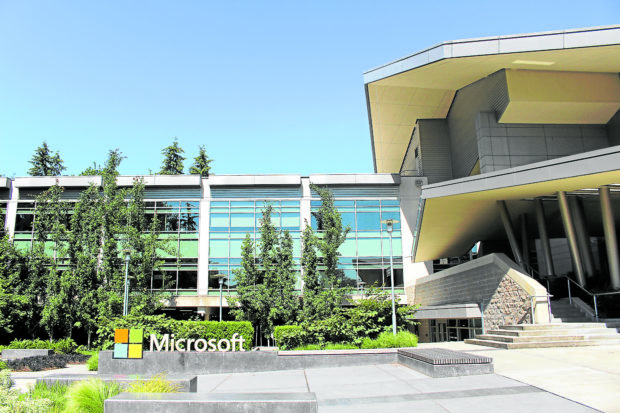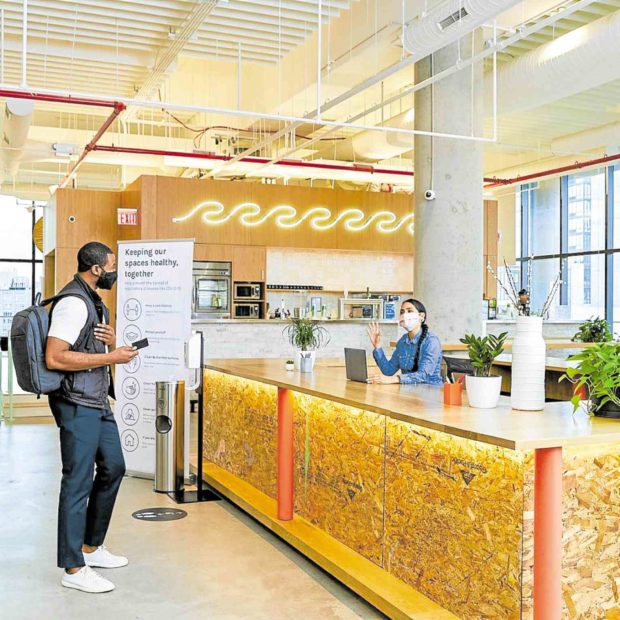By this time, companies have already adjusted to the new normal work setup amid the pandemic. While remote work and hybrid arrangements continue to be in place, many companies still regard offices with importance, recognizing the need for physical places where people can come together, connect and develop their careers.
But with the easing of quarantine restrictions, more employees are starting to report again to their offices. Companies should thus rethink the design of their workspaces to prevent virus transmissions while also keeping an efficient workforce. Colliers Philippines had said office spaces in the new normal could prioritize lower office space density, increase technical provisions for indoor air quality, supply and circulation, and adopt green, sustainable building standards such as LEED and WELL.
Some offices abroad, however, are fortunate to have designs and systems well-suited for this new normal—some, even before the pandemic, while others, during the early days of the lockdown. Here are some examples.

Digital Garage
Tokyo
Internet group and startup incubator Digital Garage was the first company in Japan to implement contactless fingerprint biometrics in April last year, a suitable innovation amid the pandemic. The fingerprint technology was installed in the headquarters in partnership with Idemia, a multinational technology company and an expert in “augmented identity.”
The Shibuya office, with its 450 employees, now uses a biometric reader equipped with fingerprint technology and powered by artificial intelligence that can scan four fingers in less than one second. Employees may have system and floor access by simply waving their hands through the reader. The technology eliminates the need for cards or other codes for entry and the possibility of multiple people touching surfaces, making it a great innovation as the world slowly recovers from the COVID-19 pandemic.
Pricewaterhouse Coopers offices
Switzerland
Demand for contactless technology has been seeing a rise in the wake of COVID-19, but some companies have been making use of it way before the need to go contactless. PricewaterhouseCoopers, a global network of firms offering assurance, tax and consulting services, already had a contactless system in its Swiss offices since 2006. Its shift to a contactless system was made through an all-in-one card technology that employees can use to make e-payments and book flexible workstations. On-site staff may simply identify themselves at the office entrances using their contactless identity cards, which open staff turnstiles and lift doors, including doors to different facilities.
With this ID card, employees may also pay contactless for food served in the canteen and from snack vending machines. The card has up to 127 applications that can be programmed in it and is still expandable for future use. Now, more than ever, this technology is an example of what workplaces need during the new normal.
Microsoft Redmond campus
Washington
With its lush open spaces, the Microsoft headquarters in Redmond is a modern workspace ahead of its time. While the company was also affected by the pandemic leading to remote work for the majority of the employees, its office has all kinds of spaces that could easily adapt to the safety measures that the health crisis calls for. It has car-free zones, a cross-campus bridge for pedestrians and bicyclists and energy-optimized smart buildings.
There are soundproof drop-in phone booths or upholstered alcove for those who need focus and privacy, and a light-filled atrium good for inspiration and the health of employees. All these facilities are still available to this day but with limitations and safety protocols now in place for the welfare of everyone in the campus.
WeWork offices
Global shared workspace provider WeWork had an early response to workplace changes in the wake of the pandemic. In an effort to curb the spread of the virus, it has installed more digital signage devices to show the walking direction of one-way paths in hallways and notify members of the maximum number of people allowed in meeting rooms. Besides the enhancement of cleaning measures, WeWork reduced the occupancy of lounges to ensure physical distancing, limited the work nooks to a single person per booth, and reconfigured meeting rooms.
The company also partnered with a leading global engineering consulting firm to improve indoor air quality and enhance the building’s heating, ventilation and airconditioning. These early efforts to maintain the office spaces while keeping up with the new normal are something that many companies across the world could take notes from.
Article and Photo originally posted by Inquirer last April 24, 2021 6:25pm and written by Arriane Suarez..










More Stories
Vista Land Celebrates 50 Years with Sandiwa: An Event Honoring Leadership, Legacy, and the Filipino Dream of Homeownership
Vista Land Celebrates Love Month in Ilocos Region
Vista Land Bridges Cebuano Heritage and Progress with Valencia by Vista Estates